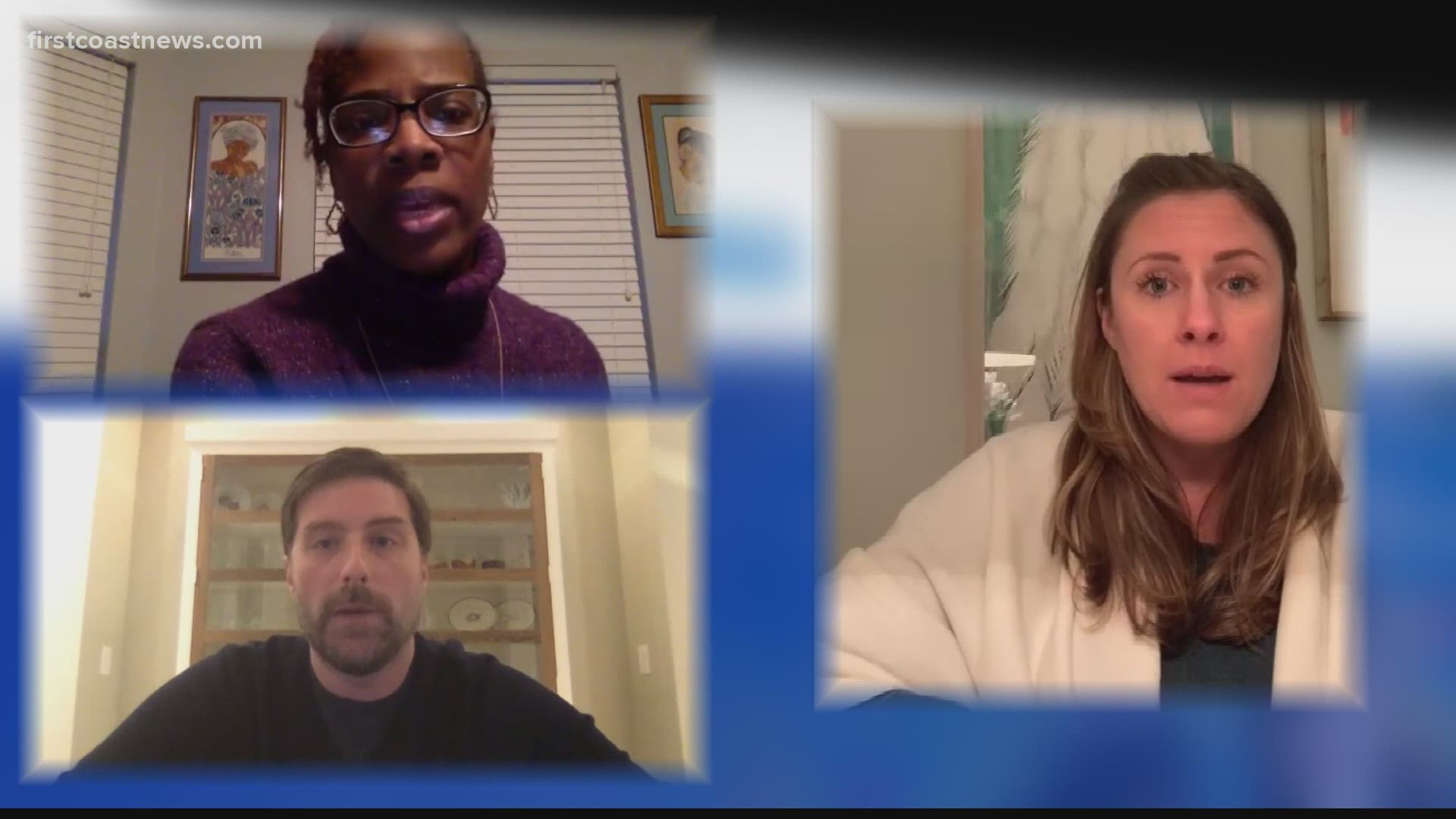JACKSONVILLE BEACH, Fla. — The Bolles School told parents and students it is discontinuing part of its racial literacy curriculum after some controversy amongst the community, as first reported by our partners the Florida Times-Union.
Families received this letter Tuesday night, stating the school decided not to move forward with the Pollyanna racial literacy curriculum.
“So many people have been working for so long to get it up and running,” said Diana Davis, whose son is a 7th grade student at Bolles.
The school has been advertising the program for months.
Some parents, like Mark Walker, who just enrolled his son into kindergarten this year at Bolles, we’re excited about the program and how it adapted its lessons to different grade levels.
“We want everyone to feel welcome, we want everyone to feel loved and cared about and that they belong,” Walker said.
The school said other parents disapproved, which contributed to the school’s decision to discontinue the program.
“We realize that certain elements of the Pollyanna curriculum created much angst amongst our community,” the letter said. “After careful consideration, we decided not to move forward with it and will explore other diversity initiatives and resources that we believe will strengthen Bolles and ensure that the School is a welcoming and supportive community for everyone.”
Dr. Tammy Hodo, President of All Things Diverse and University of North Florida professor weighed in on the issue.
“What The Bolles School is telling their students of color by not implementing the racial equity curriculum is that they value the emotional feelings of the majority versus the continued subjugation and discomfort of their minority students,” Hodo said.
First Coast News asked the school what was so controversial about the program.
Bolles Spokeswoman Jan Olson said, “Some in our community really wanted it and some in our community really didn’t.”
No further clarification was given.
“That’s part of the problem,” Walker said. “We don’t know. There hasn’t been an opportunity for us to have a conversation. They haven’t put us in a group with parents who are and aren’t interested.”
In an October newsletter, the school laid out what the Pollyanna curriculum would entail.
- Encourage kindness, bravery and empathy when exploring and better understanding the cultural and racial diversity of local and global communities.
- Develop a more inclusive and positive perspective of self, others and the larger world in regard to race, ethnicity and culture.
- Analyze history and other social assertions that fabricate myths of innate racial superiority, in order to dispel myopic, discriminatory perspectives of race.
- Analyze race as a primary institution of the United States.
- Critique the biological fallacy of race, while simultaneously unpacking its social truths.
“It’s extremely disheartening because I believe no matter what the curriculum is pertaining to this, there will be portions that will always make people feel uncomfortable,” said Katonia Wilkens, co-founder of Parents for Positive Change and whose three kids attend Bolles. “So at what point will we move forward with the curriculum and determine what needs to be done?”
Bolles’ letter to families states the school realizes doing nothing is not an option.
“The school has said there will be change and will continue to move forward, and we’re going to hold them to that,” Davis said.
“There is a saying that when you are use to privilege, equity feels like oppression and that is what is taking place at The Bolles School,” Hodo said. “When I hear comments such as “angst” used to justify why they have cancelled using the Pollyanna racial equity curriculum I envision fragility. The students of color at The Bolles School are experiencing angst everyday they step foot on a campus that is not ready nor willing to acknowledge the continued bias and microaggressions they experience."
This follows the creation of an Instagram page @BlackAtBolles, which served as an anonymous space for current and former black students, staff and parents to share their experiences at the school.
Similar pages were created for other schools such as Episcopal School of Jacksonville and Bishop Kenny, but Hodo said there was a significant difference between those pages and @BlackAtBolles.
“As a parent of an African American male 2020 graduate of ESJ and a diversity, equity, and inclusion expert, I noticed that Black at Bolles was about people in positions of power e.g., teachers and staff saying culturally insensitive statements and making negative assumptions about their black student body,” Hodo said. Black at ESJ discussed negative interactions with other students but I do not recall seeing any or many comments made regarding the teachers and staff at ESJ. Teachers and staff are supposed to set the example and tone of the campus and the one that is apparently set at Bolles is one of disconnect and lack of concern for their students of color.”
Bolles said it will be sending out a survey to gather more community feedback in February.

